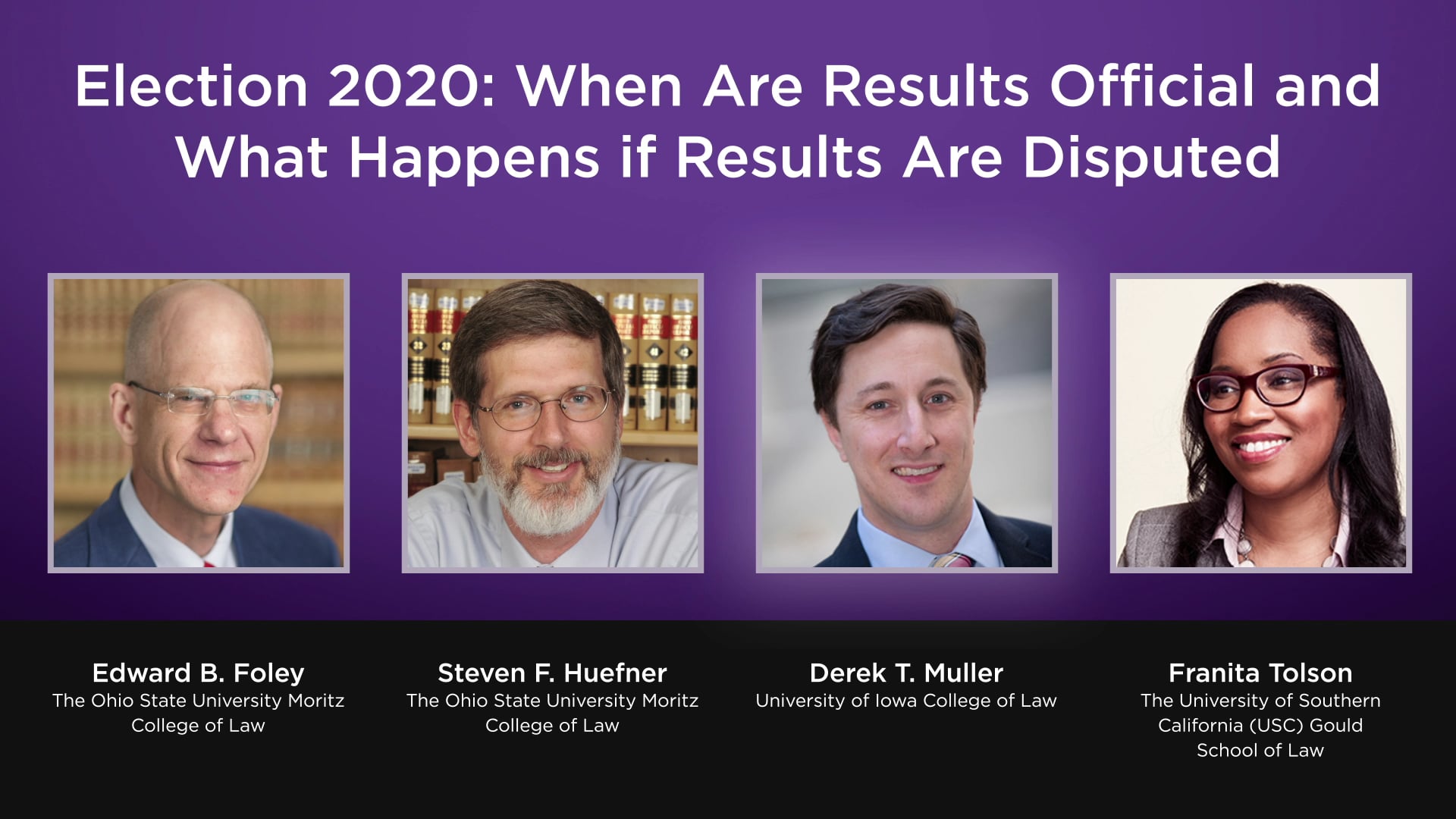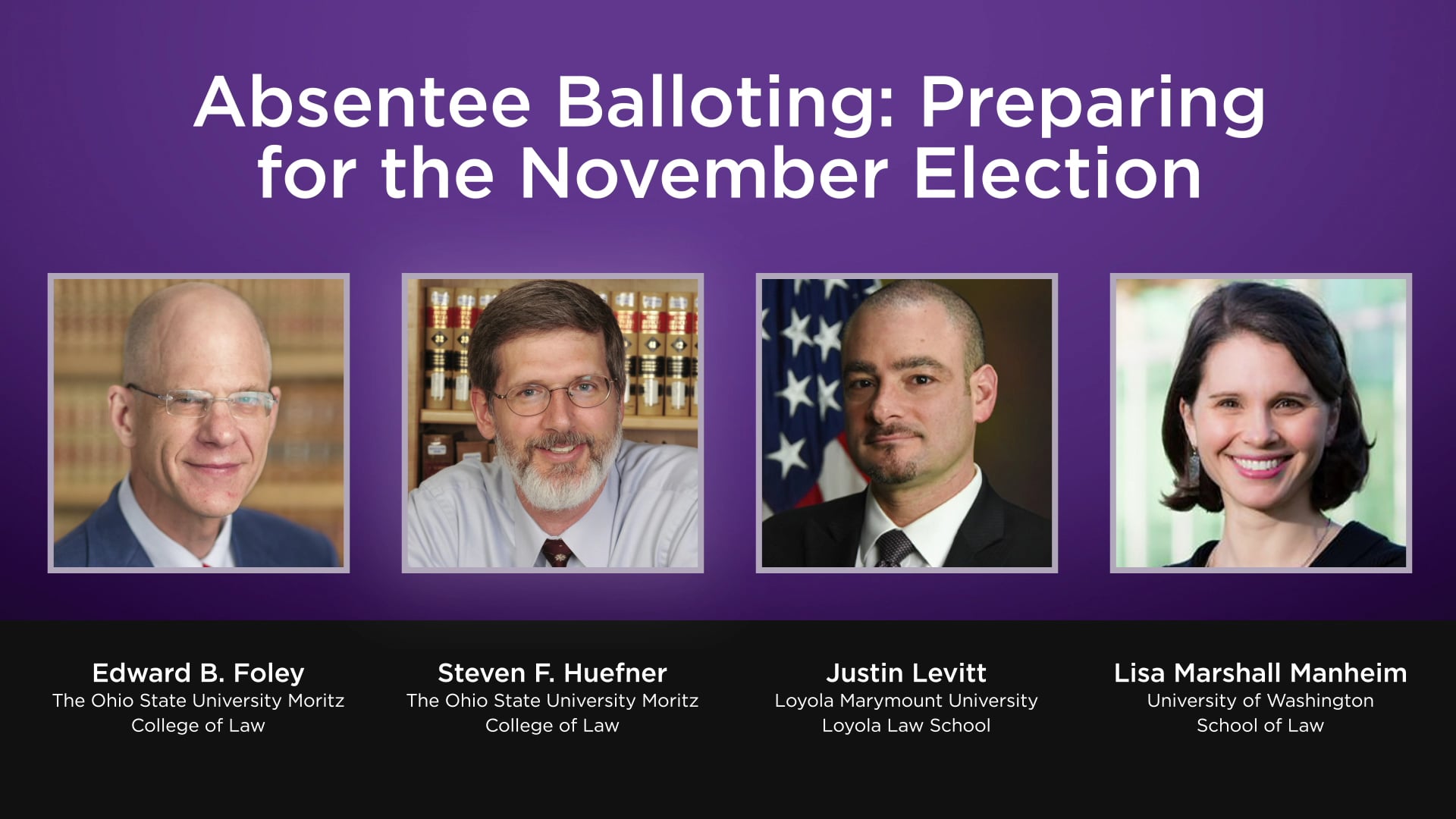On July 6, 2020, the Supreme Court of the United States held that states may replace and even punish “faithless electors,” the term used for a member of the U.S. Electoral College who does not vote for the presidential or vice presidential candidate they pledged to support. In this episode of Reasonably Speaking, moderator Steven F. Huefner (Moritz Law) will lead Edward B. Foley (Moritz Law), Kate Shaw (Cardozo Law), and Franita Tolson (USC Gould Law) as they consider the implications of the Court’s ruling and reasoning for a broader set of questions on the Electoral College system and what might happen in this year’s election.
What if there is a 269-269 tie (hardly impossible given current political climate)? What if the electoral votes from one or more states are disputed in Congress, as might happen if a state’s legislature attempts to repudiate the certification of the state’s popular vote on the ground that it was tainted by some form of fraud (perhaps involving absentee ballots distrusted by the state’s legislature)? Is there anything that can be done now, before voting occurs in the fall, to improve the chances that any such Electoral College anomalies will be handled through the rule of law, in a way publicly perceived as appropriate under the Constitution, rather than perceived as a lawless power grab?
A transcript of the episode is available here. Please excuse typos due to inaudible passages or transcription errors.
The views and opinions expressed on Reasonably Speaking are those of the speakers and do not necessarily reflect the policy or position of The American Law Institute or the speakers’ organizations. The content presented in this broadcast is for informational purposes only and should not be considered legal advice. Please be advised that episodes of Reasonably Speaking explore complex and often sensitive legal topics and may contain mature content.
Visit http://www.ali.org/podcast to learn more.



